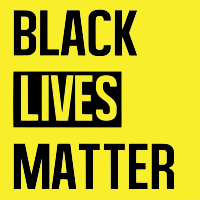
Photo from wikipedia
Contact with the criminal legal system has been shown to reduce individuals’ political participation, but its effect on friends and family members is less clear. Do people who see loved… Click to show full abstract
Contact with the criminal legal system has been shown to reduce individuals’ political participation, but its effect on friends and family members is less clear. Do people who see loved ones arrested or incarcerated become mobilized to change the system, or do they withdraw from political life? I address this question using administrative data from one large county, identifying registered voters who live with someone facing misdemeanor charges. Court records and vote histories allow me to accurately measure proximate criminal justice exposure and voting for a broader sample of people than survey data would. Using case timing for arrests shortly before and shortly after the election allows me to avoid bias from omitted variables. I find evidence of a short-term demobilization effect for people who see household members convicted or jailed in the weeks before the election, but no evidence of a lasting turnout effect from these experiences.
Journal Title: American Political Science Review
Year Published: 2018
Link to full text (if available)
Share on Social Media: Sign Up to like & get
recommendations!